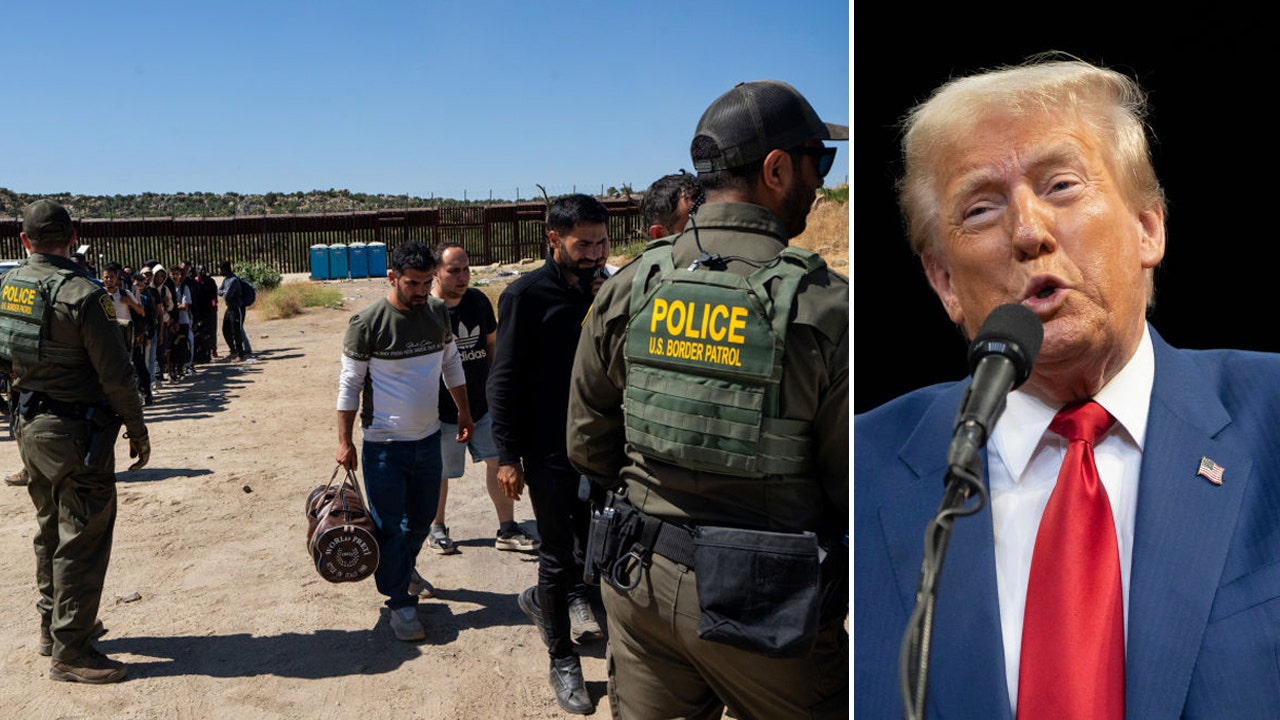Politics
New cartel threats against border agents: Explosives, drones and wireless tracking

The Escalating Threats to Border Security Agents Under the Trump Administration
The U.S.-Mexico border has become an increasingly volatile environment as President Donald Trump intensifies border security and deportation efforts. Customs and Border Protection (CBP) and Immigration and Customs Enforcement (ICE) agents are now facing alarmingly sophisticated threats, according to security experts. These threats stem from cartels desperate to maintain their lucrative smuggling operations, which have been severely disrupted by tighter border controls. Lora Ries, director of the Heritage Foundation’s Border Security and Immigration Center, warns that cartels are not going down without a fight. "The cartels are losing business. The encounters at the border are the lowest they’ve been in decades, and the cartels are not just going to give up that business quietly," Ries told Fox News Digital. As the cartels scramble to adapt, they are employing advanced tactics to target border agents, putting their lives at greater risk.
The Shutdown of Body Cameras: A Necessary Precaution or a Step Backward?
In response to a growing security concern, CBP agents have been instructed to stop wearing body cameras during field operations. This decision was prompted by a troubling revelation: a Reddit post highlighted how an app called BLE Radar, which uses Bluetooth to detect devices within a 100-yard radius, could potentially be used to track agents wearing body cameras. The directive stated, "Pending completion of investigation and risk mitigation, all Agents will stand down the use of their BWCs [body-worn cameras] until further notice." While the post initially suggested that migrants could use the app to identify vulnerabilities in border security, the broader implications were chilling. Cartels could exploit this technology to locate and harm agents, potentially using the information to set traps or even deploy improvised explosive devices (IEDs). Ries emphasized that the cartels are highly capable of using such tactics, stating, "It is possible that they could use the cameras… the low-level frequency interception to track the agents, harm the agents, and attack the agents."
The suspension of body cameras, however, has sparked concerns about transparency and accountability. These devices have played a crucial role in protecting agents from false allegations of abuse. Without this critical evidence, agents could become more vulnerable to unfounded claims, which Ries predicts will rise. "I anticipate the number of claims of abuse are about to jump to exploit this lack of camera use," she said. This dual-edged issue underscores the difficult balance between agent safety and the need for accountability in law enforcement operations.
The Cartels’ Arsenal: Drones, Shooters, and Emerging Threats
The threats to border agents extend beyond the shutdown of body cameras. Cartels have demonstrated their ability to adapt and evolve, employing a variety of tactics to counter increased border security. Ries pointed to one particularly alarming memo suggesting that cartels might deploy shooters on the Mexican side of the border to target U.S. agents and military personnel. "I just saw a memo about potentially using a shooter on the Mexican side to shoot at our agents and our military, so we have to assume that’s being planned and use countermeasures against it," Ries said. Such a move would escalate tensions dramatically, turning the border into an even more dangerous battleground.
In addition to ground-based threats, cartels have historically used drones to track CBP agents and monitor their movements. While the increased military presence at the border has somewhat mitigated this threat, the cartels’ willingness to embrace technology highlights their sophistication. As the cat-and-mouse game between law enforcement and smugglers continues, agents must remain vigilant and equipped to counter these evolving threats.
Internal Threats: Leaks and the Danger of Ambush
The risks to CBP and ICE agents are not limited to cartel activity. Internal threats, such as leaks of planned ICE raids, have also become a significant concern. Ries highlighted how such leaks can endanger agents by tipping off targets or even setting them up for ambushes. "That subjects ICE agents to an ambush," she said. "It’s one thing for aliens to flee, so when ICE shows up there’s no one there… worse would be if aliens stay here and attack ICE agents, that is a risk." These leaks not only undermine the effectiveness of enforcement operations but also place agents in greater danger. As opposition to Trump’s hardline immigration policies grows, such leaks may become more common, further jeopardizing the safety of agents.
The Need for Congressional Support and Proactive Measures
Addressing these threats requires a multifaceted approach that goes beyond mere awareness and tactical adjustments. Ries stressed that agents need better technology, equipment, intelligence, and personnel support to effectively counter these dangers. "Congress is working, although too slowly, getting resources to CBP and ICE to continue to carry out these mass deportations. Congress needs to hurry up," she said. The importance of congressional action cannot be overstated. Without adequate funding and resources, agents will remain at a disadvantage, facing increasingly sophisticated threats with limited tools to protect themselves.
As the situation at the border continues to unfold, one thing is clear: the safety of CBP and ICE agents must remain a top priority. This requires not only proactive measures to counter emerging threats but also a commitment to providing agents with the resources they need to perform their duties safely and effectively. The stakes are high, and failure to act could have deadly consequences for those on the front lines of border security.


















